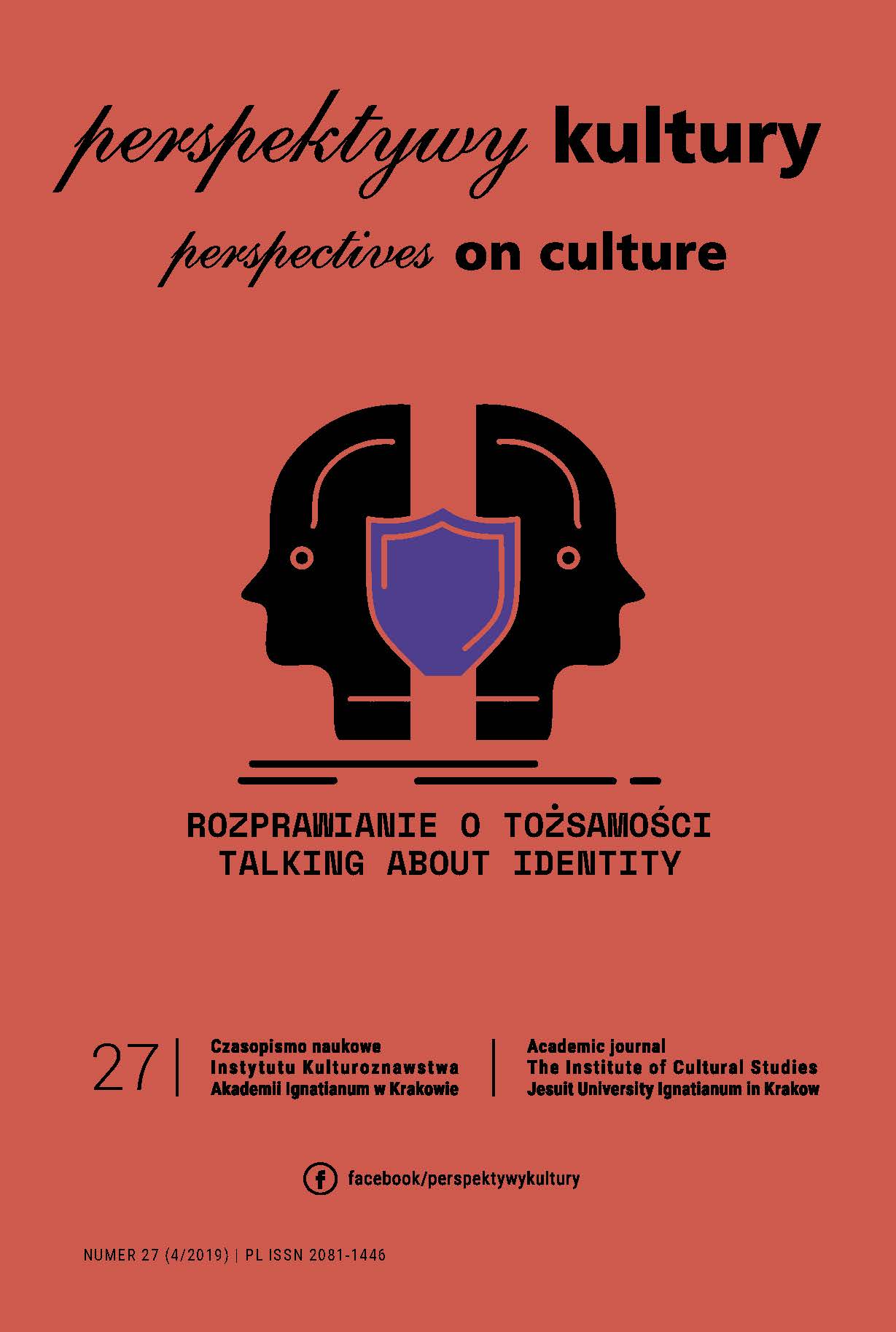From the Editors
Abstrakt
The title subject matter of this Issue 27 of our quarterly “Perspectives on Culture” is likely to direct the Reader’s intuition toward philosophical reflection. And rightly so. The basic dictionary definition of “identity” provides one meaning of the term signifying a state of being identical, and further, implies the facts, features, and personal information allowing one to identify a person. However, a deeper, humanistic and social definition refers to the area of self-awareness, but also a sense of unity with the community, and the elements that determine it. These elements are especially culture, values, and finally, the community itself as seen in the metaphysical dimension, i.e., high moral and religious ideals. Two authors–philosophers, Agata Płazińska, and Piotr Duchliński from the Ignatianum University, propose their reflections on the metaphysical and culture-building nature of self-sacrifice as represented by the lives and deaths of Edith Stein and Simone Weil, and the meaning of self‑sacrifice in the name of higher values. In our culture, such value might lie in giving one’s life for another human being. It is a kind of sacrifice which can be described as an absolute one. Contrary to the present crisis in metaphysics and axiology, such “absolute acts” are essential and indelible elements of identity in our culture. In the second text, Fr. Mariusz Szram from the John Paul II Catholic University of Lublin goes back many centuries, to the time of the Fathers of the Church, to explore the theological reflection on creating a monumental cohesion of Semitic and Hellenic thought, defining the identity of Christianity. Two other interesting analyses in our title section are Christian Identity of a Teacher of Early Education in the Contemporary World by Ewelina Kurowicka-Roman (KUL JPII) and Shaping the National Identity of the Youth in the Polish Scouting Association (ZHP) by Kamil Roman (also from the Catholic University of Lublin).
Copyright (c) 2019 Jesuit University Ignatianum in Krakow

Utwór dostępny jest na licencji Creative Commons Uznanie autorstwa – Bez utworów zależnych 4.0 Międzynarodowe.
Autor, zgłaszając swój artykuł, wyraża zgodę na korzystanie przez Wydawnictwo Uniwersystet Ignatianum z utworu na następujących polach eksploatacji:
- utrwalania utworu w formie papierowej, a także na nośniku cyfrowym lub magnetycznym;
- zwielokrotnienia utworu dowolną techniką, bez ograniczenia ilości wydań i liczby egzemplarzy;
- rozpowszechniania utworu i jego zwielokrotnionych egzemplarzy na jakimkolwiek nośniku, w tym wprowadzenia do obrotu, sprzedaży, użyczenia, najmu;
- wprowadzenia utworu do pamięci komputera;
- rozpowszechniania utworu w sieciach informatycznych, w tym w sieci Internet;
- publicznego wykonania, wystawienia, wyświetlenia, odtworzenia oraz nadawania i reemitowania, a także publicznego udostępniania utworu w taki sposób, aby każdy mógł mieć do niego dostęp w miejscu i czasie przez siebie wybranym.
Wydawca zobowiązuje się szanować osobiste prawa autorskie do utworu.





